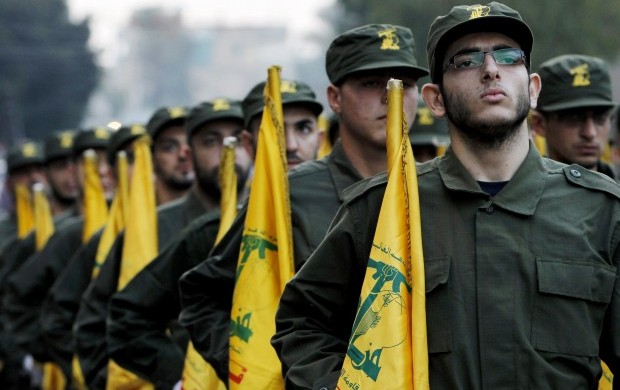Europe usually supports and complements American policies and positions in the Middle East; however placing Hezbollah on the list of designated terrorist organizations is an exception to this rule. Washington has always been keen to push the Europeans to take this decision after doing so itself following its accusations, decades ago, that the party was responsible for several bombings targeting both American soldiers and embassies in Beirut and Africa. However Europe has never been as enthusiastic about this cause to the point that it has never been able to reach a unanimous decision to take, or justify taking, such a move.
So, when the Bulgarian Minister of Interior accused Hezbollah of bombing an Israeli bus in Burgas in mid-2012, European Commission President José Manuel Barroso responded that “blacklisting an organization as a terrorist movement takes careful considering given the legal, political, and security implications.” He added: “Member states need to agree unanimously, it’s not down to the European Commission.”
However the United States, along with Israel, responded more quickly to the Bulgarian allegations. This is because both countries did not want to miss an opportunity to strike a blow against Hezbollah, Iran’s strong ally, besieging it and blocking its European political benefits. The Washington Post revealed that “White House counter-terrorism chief John Brennan urged Europe to ‘take proactive action to uncover Hezbollah’s infrastructure and disrupt the group’s financing schemes and operational networks in order to prevent future attacks.’” Brennan also emphasized that Hezbollah “poses a real and growing threat not only to Europe, but to the rest of the world.” As for Israeli Prime Minister Benjamin Netanyahu, he said: “We hope the Europeans learn the proper conclusions from this [attack] about the true character of Hezbollah.” He emphasized that the attack in Bulgaria was “perpetrated by Hezbollah, Iran’s leading terrorist proxy” adding “this attack was part of a global campaign of terror carried out by Iran and Hezbollah. This terror campaign has reached a dozen countries in five continents.”
France, in particular, was one of the European countries most against the idea of adding Hezbollah onto the list of designated terrorist organizations. This is not because France trusts Hezbollah, or believes that the group is innocent, or believes Iran and Hezbollah’s denial of involvement in the bombings. Rather this is because Paris, keen on maintaining its strategic influence in Lebanon, is aware that supporting these accusations could threaten its ties with Hezbollah and the Lebanese government—which includes Hezbollah ministers—and the French want to ensure that these channels of communication remain open. With this, Israeli hope in seizing what it views as a pivotal opportunity has been dashed.
However in reality the Bulgarian government failed to present the EU with strong and convincing evidence of Hezbollah’s involvement. In fact, the Bulgarian Interior Minister’s accusations against Hezbollah were rejected by the Bulgarian opposition prior to the government itself being forced to resign under pressure from widespread popular protests. The case ended with the EU rejecting Bulgaria’s demand; however the issue regarding Hezbollah being added to the list of designated terrorist organization has not been resolved.
A few predicted that Israel might use these accusations as a justification for a direct military strike against Hezbollah, particularly as the party’s energies were split between dealing with domestic condemnation and the threats being faced by its Syrian ally. This is not to mention the fact that Israel has for years sought to carry out a military strike against Iran, while also restore what it lost during the July 2006 war in terms of deterrent capabilities. Israel was of the view that this was an opportune moment for just such a strike, but subsequent events moved in a different direction.
In addition to this, regional and international calculations do not permit for such an analysis, to the point that we cannot expect such a strike in the foreseeable future; neither against Hezbollah, nor against Iran. This is because Europe is immersed in its own economic crisis and the United States is seeking to negotiate directly with Iran over its nuclear program, entrusting Russia to search for a “political solution” to the Syrian crisis. This means that it is impossible to even contemplate any military action or conflict that may aggravate the region or incite further clashes that will spiral out of control. This is important because the Syrian regime, which is a major ally of both Hezbollah and Iran, currently finds itself being weakened, and this is not costing the US or Israel anything. This pours even more doubt on the prospects of a war that could result in the West shouldering costs that it does not want to bear, particularly as any such war would become an Arab, Islamic, international and media priority, taking the place of the conflict that is currently raging in Syria.
So long as Hezbollah claims to be in a constant state of resistance against Israel, striving to avenge the death of its military commander Imad Mughniya, it will be prone to accusations of terrorism.
Therefore, if war against Hezbollah or Iran is unlikely in the foreseeable future, the alternative for Europe and the US is deterrence and containment, nothing more. This would be part of a strategy that could be described as “tightening the noose”, namely, limiting the political benefits to Hezbollah and economic benefits to Iran. However, this strategy will require a significant amount of time to achieve its objectives, and nobody can predict what changes or shifts in policy will occur with the passage of time.
